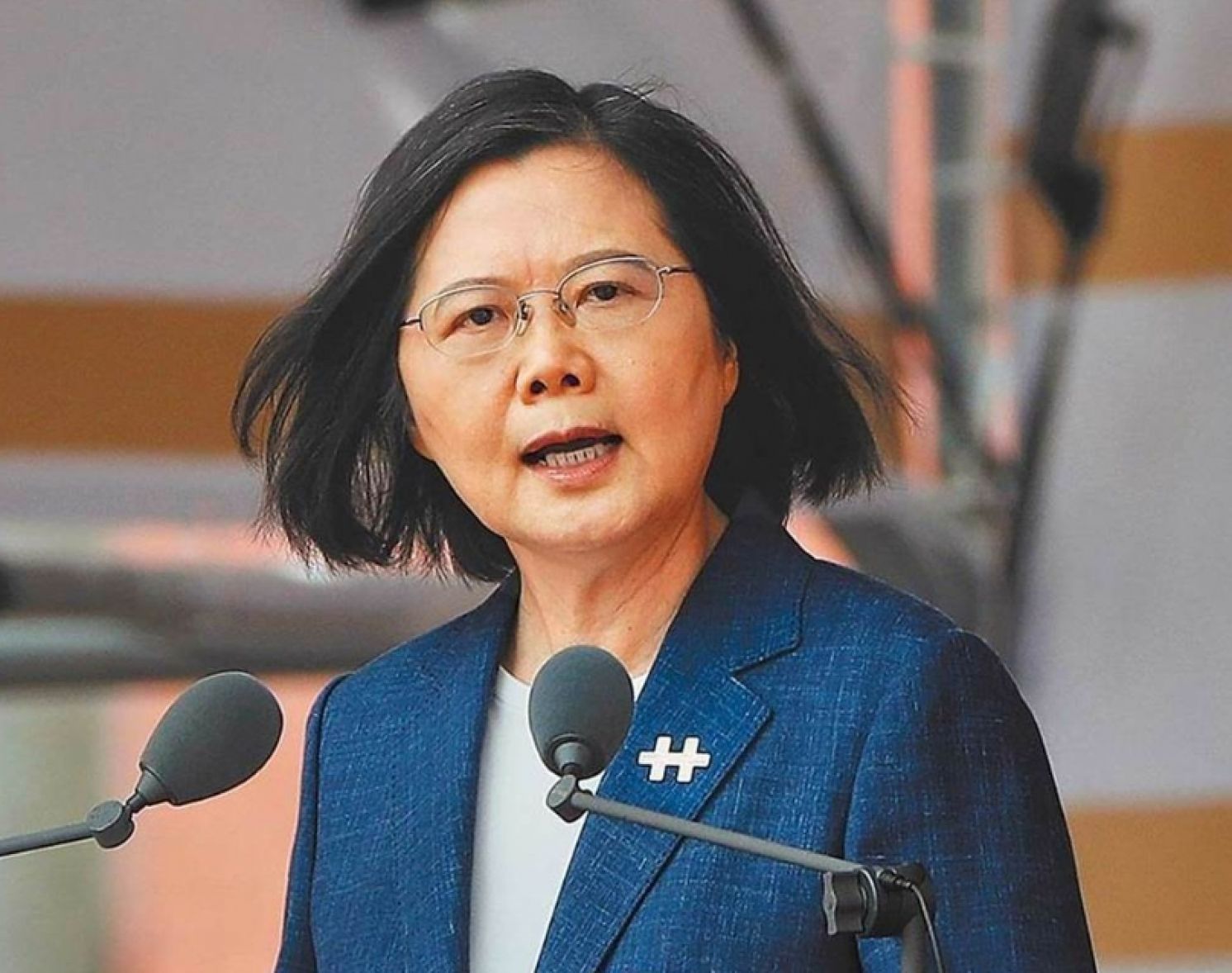
President Tsai's Diplomatic Dead-End Journey
China Times Editorial, September 8, 2023
President Tsai Ing-wen concluded her four-day visit to Eswatini, signing several cooperation agreements and ceremoniously reaffirming the enduring friendship. However, juxtaposed with the increasingly dire diplomatic reality, this trip can hardly be considered to have achieved any significant outcomes, nor can it curb the downward spiral of Taiwan’s situation on the international scene.
Eswatini has maintained diplomatic relations with the Republic of China (Taiwan) since its independence in 1968. The Democratic Progressive Party (DPP) administration has often avoided using the official name “Republic of China,” even excluding it in recent years from prominent visual imagery during National Day celebrations. However, this small southern African kingdom has consistently recognized the R.O.C. for the past 55 years, providing diplomatic recognition to Taiwan. It has also provided various forms of assistance and supported Taiwan’s participation in international organizations, without engaging in diplomatic flip-flopping between Taiwan and mainland China. This enduring commitment is indeed highly valuable.
However, Taiwan's international predicament has reached a point where even strenuous efforts to maintain existing diplomatic allies cannot reverse its declining status. Currently, the R.O.C. only maintains diplomatic relations with 13 countries: Guatemala and Belize in Central America; Haiti, Saint Kitts and Nevis, Saint Lucia, and Saint Vincent and the Grenadines in the Caribbean; as well as the Marshall Islands, Nauru, Palau, and Tuvalu in the Pacific. In South America, Africa, and Europe respectively, Taiwan has one diplomatic ally each: Paraguay, Eswatini, and the Holy See. Notably, none of these countries are major international players. The sole European country, the Holy See, is an ecclesiastical entity that has shown strong inclinations to establish diplomatic relations with China: After the R.O.C. withdrew from the United Nations in 1971, the Holy See ceased ambassadorial representation in Taiwan, effectively demoting bilateral relations.
Among these 13 diplomatic allies, six have populations of under 100,000, which is less than even a single administrative district within Taipei. Their combined gross domestic product (GDP) is approximately 164.2 billion, which is just over 20% of Taiwan’s GDP. When considering this lineup of diplomatic allies, if no sense of crisis arises, then the situation is truly hopeless.
When former President Ma Ying-jeou transferred the reins of political power to President Tsai in 2016, Taiwan had 22 diplomatic allies. But due to the abandonment of the 1992 Consensus by the DPP administration, cross-strait relations froze, diplomatic truces became a thing of the past, and Taiwan lost nine diplomatic allies throughout the past seven years. Furthermore, the downward trajectory shows no sign of abating. Central America used to be a stronghold for Taiwan’s diplomacy, with long-standing relationships with Guatemala and Panama spanning the length of decades. However, as mainland China’s economic prowess grew, offering more attractive political and economic incentives compared to Taiwan, one by one, Central American diplomatic allies also switched alliances.
Recently, the Central American Parliament (PARLACEN) passed a resolution to permanently withdraw the observer seat of Taiwan’s Legislative Yuan, to be replaced by Communist China’s National People's Congress. Guatemala, Taiwan’s only remaining diplomatic ally in Central America, did not participate in the vote and has displayed an ambiguous stance. Guatemala’s population and GDP are among the largest in Taiwan’s current list of 13 diplomatic allies, but the newly elected Guatemalan President Alejandro Giammattei has historically shown pro-China leanings. The sustainability of diplomatic relationships between the two countries remains uncertain and a source of concern.
No matter how much effort the DPP administration puts into domestic propaganda, it cannot reverse the harsh reality of international politics. The reality is: Taiwan’s legal standing in the international community is continuously weakening, and its international presence is shrinking. The few remaining diplomatic allies are unable to prevent Taiwan’s exclusion, let alone help Taiwan participate in international organizations. The low number of diplomatic allies has long since fallen below the critical threshold necessary for generating discussion, or exerting influence, and may in fact continue decreasing in the future.
Essentially, Taiwan’s diplomatic dilemma stems from cross-strait tensions, while other countries pragmatically lean towards mainland China. Since Taiwan’s power is far from matching that of the mainland, traditional strategies of relying on economic trade in diplomatic battles are no longer viable for Taiwan; China, the world’s second-largest economy, now possesses far greater financial resources and unparalleled advantages in international politics, military, technology, an immense market, and the “Belt and Road Initiative.”
The DPP administration’s pro-American and anti-China stance, with the idea of relying on the United States for survival, has not substantially improved Taiwan’s diplomatic situation, despite recent U.S. legislation being favorable to Taiwan and the worsening relations between the United States and China. It has failed to help Taiwan retain diplomatic allies in Central America, and it could not even secure an invitation for Taiwan to the World Health Assembly (WHA). Instead, the United States has increased its arms sales to Taiwan, aiming to turn Taiwan into a “hedgehog” island. If conflict were to break out in the Taiwan Strait, then this stockpiling of ammunition would allow Taiwan to drain China’s resources. However, a plan for Taiwan’s long-term survival is not something which the United States is helping map out.
The vocal support for Taiwan from Western countries is encouraging but lacks substantial impact. The DPP’s diplomatic and cross-strait policies have led Taiwan to a dead end. The people must recognize the reality and not sit by watching our country fall into a dire situation. Instead, we should strive to find common ground between both sides of the Strait, de-escalate cross-strait tensions, and expand Taiwan’s international presence, in order to protect its survival and development. Indulging continuously in wishful thinking will ultimately lead to a self-fulfilling prophecy of national demise.
From: https://www.chinatimes.com/opinion/20230908004054-262101